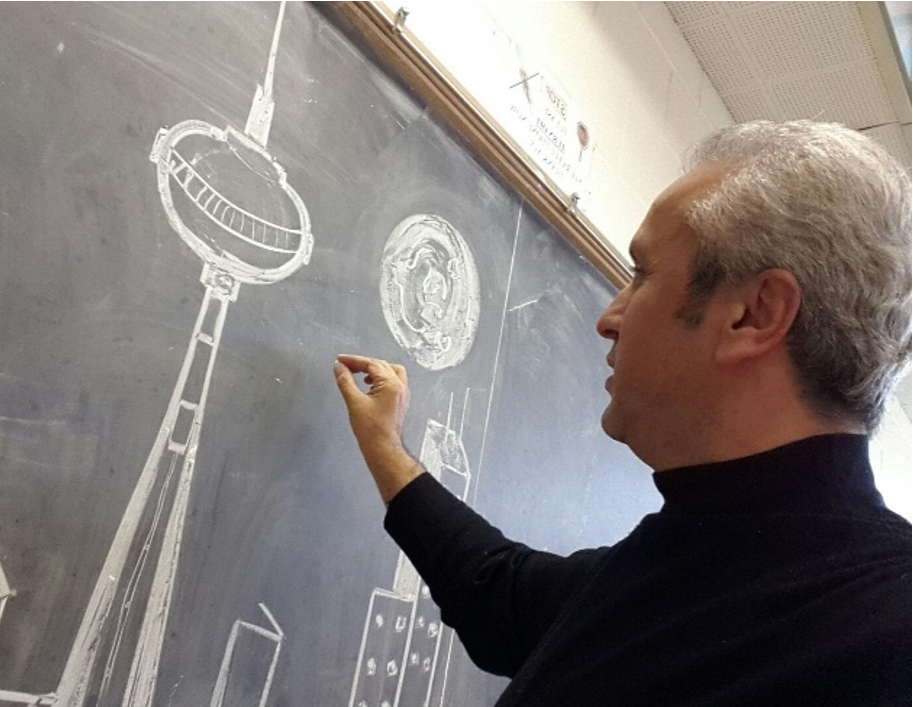Student Resources
Earning a B Ed in Adult Education
By Heather Junke
Alain Gelinas is on a mission of his own as he studies full time for a Bachelor of Education (BEd) in Adult Education at Brock University
Most adult education learners, who are pursing the first degree option of the Brock program, study part time for many years to complete the 15-credit requirements. Gelinas is committed to completing his degree in two and a half years — applying the kind of discipline that you might expect from a member of Canada’s military.
Gelinas has served in the military for close to 20 years. For the past five years, he has been stationed at CFB Borden and has taught and served as administrative personnel with the base’s leadership instruction program. Most recently, he was accepted into the very competitive University Training Plan for Non-commissioned Members. The Adult Education degree is his first step in meeting that program’s requirements.
Gelinas is among about 420 learners currently enrolled with Brock’s Centre for Adult Education and Community Outreach in one of the longest-running adult education degree and certificate programs in the province. The BEd in Adult Education is unique in Ontario as it offers both first and subsequent degree options.
The University offers learners, pursing a degree or certificate, the option of taking the Adult Education courses online or face-to-face in a classroom of 10 to 12 people, in locations across the province and the Greater Toronto Area. On-site classes held in the GTA include college campuses of Seneca, Humber, Sheridan, Durham and Centennial.
Gelinas began his undergraduate career last September and registered for four courses. He took an apartment in St. Catharines where he stays Tuesday to Saturday. He travels back to his home in Angus, Ontario to spend weekends with his wife and 17-year-old son.
“ I wondered if I could do it all”
“I had an idea of the workload that would be involved,” he said during the December exam period. “Still, I wondered if I could do it all and after living through the fall semester, I know I can do it.
“You have to make it your priority day-to-day, no different than a job. From six in the morning through to five in the afternoon I’m studying or going to my classes. I spend half a day on the weekend as well. It’s what you have to do to make it work.”
In the fall term, Gelinas took the first of the program’s five core courses, ADED 4F31, Foundations of Adult Education, as part of a Brock class that met every Saturday at the St. Catharines campus with facilitator Dan Matkowski.
“It was a great group,” he says. “You get to know people of very different backgrounds who bring many different ideas. That really opens your mind. I enjoyed the way the class was run with the facilitator overseeing discussions to keep things going on track.”
The other core courses are: Facilitation of Adult Learning Pedagogies, Curriculum Design for Adult Learners, Work and Learning in Organizations, and Research and Critical Reflection in Adult Education.
Gelinas also took one of a growing number of Adult Education elective courses, ADED 4P93 Adult Education in the Global Context, that was available to study online.
He’s candid about the experience of combining the two delivery modes, saying the classroom-based course is more suited to his preference for a learning experience.
As an educator of adults, Gelinas says that what attracted him most to the field of adult training was that he could use the learners’ life experiences to re-enforce theories and concepts.
“I enjoy using class discussions to challenge the way learners think and understand how certain things affect their work and life in general,” he says.
To find out more about pursing a degree or certificate in Adult Education through Brock University, please visit www.brocku.ca/education/futurestudents/adulted.




